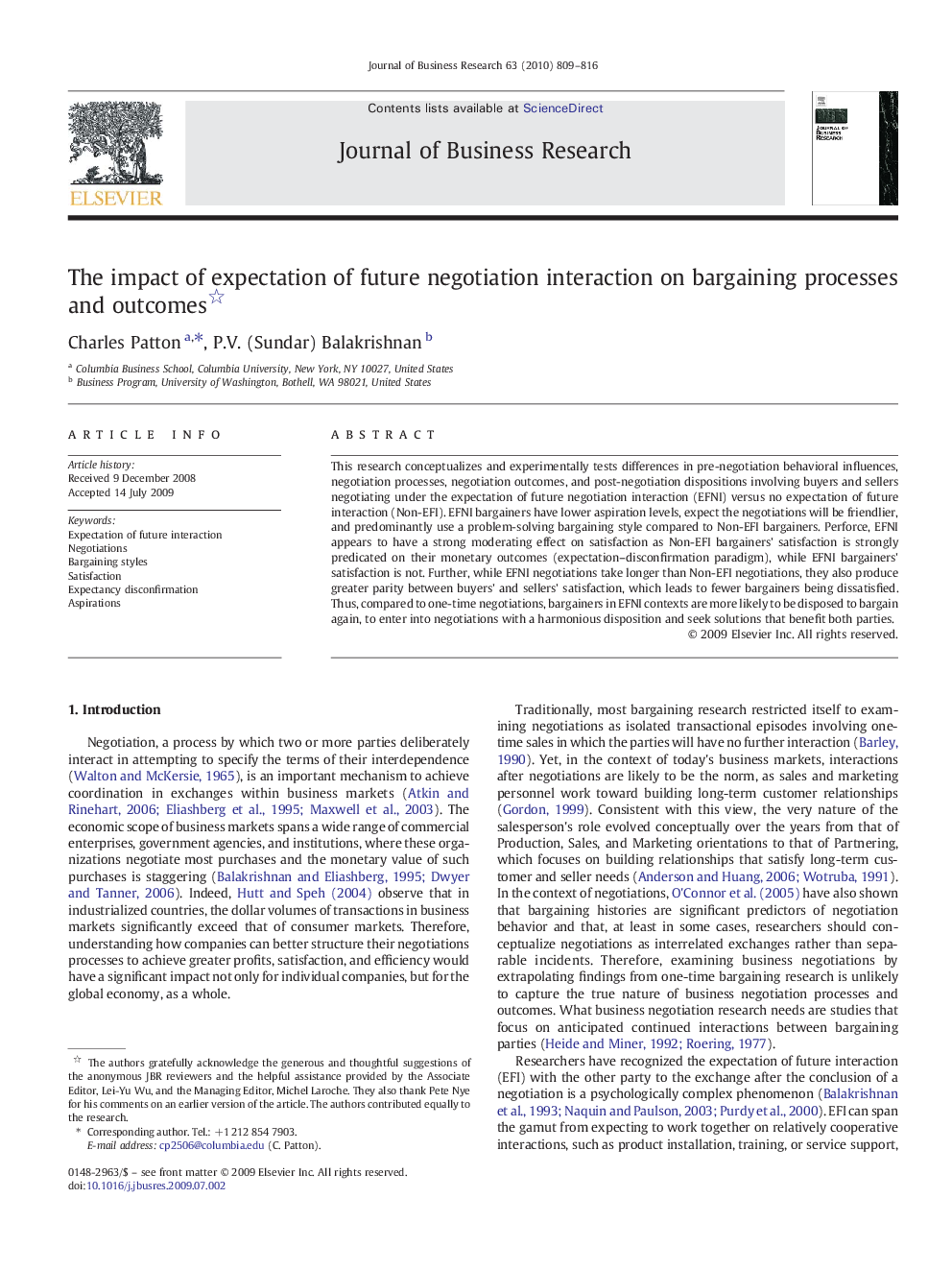| Article ID | Journal | Published Year | Pages | File Type |
|---|---|---|---|---|
| 1018050 | Journal of Business Research | 2010 | 8 Pages |
This research conceptualizes and experimentally tests differences in pre-negotiation behavioral influences, negotiation processes, negotiation outcomes, and post-negotiation dispositions involving buyers and sellers negotiating under the expectation of future negotiation interaction (EFNI) versus no expectation of future interaction (Non-EFI). EFNI bargainers have lower aspiration levels, expect the negotiations will be friendlier, and predominantly use a problem-solving bargaining style compared to Non-EFI bargainers. Perforce, EFNI appears to have a strong moderating effect on satisfaction as Non-EFI bargainers' satisfaction is strongly predicated on their monetary outcomes (expectation–disconfirmation paradigm), while EFNI bargainers' satisfaction is not. Further, while EFNI negotiations take longer than Non-EFI negotiations, they also produce greater parity between buyers' and sellers' satisfaction, which leads to fewer bargainers being dissatisfied. Thus, compared to one-time negotiations, bargainers in EFNI contexts are more likely to be disposed to bargain again, to enter into negotiations with a harmonious disposition and seek solutions that benefit both parties.
